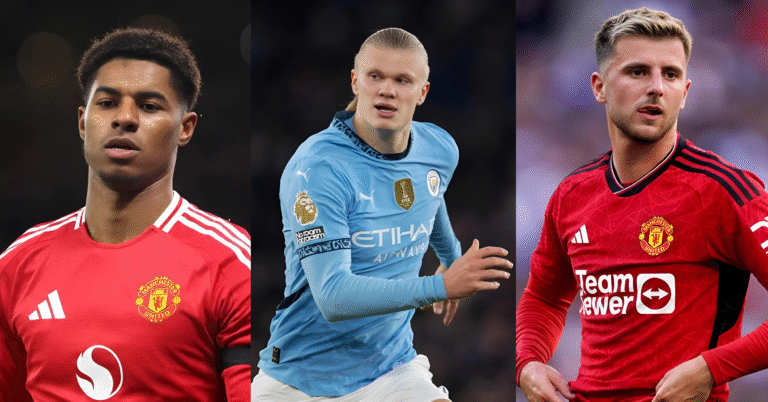
Not every hero makes headlines. Some just show up, do their job with quiet excellence, and walk off — leaving behind a legacy that stays with you far longer than the spotlight ever could.
Diogo Jota was that kind of player.
He wasn’t the loudest voice in the dressing room. He wasn’t always the flashiest on the pitch. But when Liverpool or Portugal needed a spark, he delivered — with intelligence, tenacity, and an eye for goal that couldn’t be ignored.
On July 3rd, 2025, the football world lost one of its most beloved players. Jota and his younger brother, André Silva, were tragically killed in a car crash near Zamora, Spain. He was just 28 years old, returning to England by road on medical advice after a lung procedure prevented him from flying. Just days earlier, he had married his childhood sweetheart, Rute. Now, she is a widow — and their three children are without a father.
The crash was caused by a tyre blowout on his Lamborghini SUV while overtaking on the highway. The vehicle veered off the road, caught fire, and by the time emergency services arrived, it was too late.
This isn’t just another tragic headline. This is about remembering why Diogo Jota mattered.
From Humble Beginnings to the World Stage
Jota’s journey was never about hype. He wasn’t a viral teenage sensation or a media darling. He started out in Massarelos, a small district in Porto, and began his youth career at Paços de Ferreira — far from the glamour of Europe’s elite academies.
But what he lacked in buzz, he made up for in intelligence, hunger, and relentless work ethic. He wasn’t the most gifted dribbler or the fastest sprinter. But he was always in the right place at the right time. He understood the game at a level most didn’t.
A move to Atlético Madrid in 2016 seemed like his big break, but he never played a single minute for them. Instead, he was loaned to FC Porto, and then to Wolverhampton Wanderers. It was in the English Midlands that something clicked. Under Nuno Espírito Santo, Jota found his groove — pressing, scoring, and linking play with an efficiency that made him impossible to overlook.
By the time Liverpool came knocking in 2020, it wasn’t a gamble. It was the reward of years of hard work.
Jota at Liverpool: The Ultimate System Player
At a club boasting names like Salah, Mané, and Firmino, you might expect Jota to fade into the background. But he didn’t. He carved out a place for himself through sheer consistency and tactical intelligence.
Under Jürgen Klopp, the front line wasn’t just about goals — it was about pressing, linking play, and disrupting defensive lines. Jota ticked every box. He could play on either wing, as a central forward, or even as a false nine. And no matter where he was slotted in, he made himself useful.
What truly set him apart, though, was his off-ball movement. He had an almost supernatural ability to find space — drifting into blind spots, attacking from deep, and appearing exactly where defenders didn’t expect him. His pressing wasn’t just energetic — it was purposeful, triggering the press with perfect timing and forcing opponents into mistakes.
Statistically, he was one of the most efficient scorers in Liverpool’s Premier League history:
- Premier League goals per 141 minutes — better than Robbie Fowler and Michael Owen
- Shot conversion rate of 19.3% — higher than Suárez, Salah, Torres, and Mané
And he did it all without ever demanding the spotlight.
Big Moments That Defined His Legacy
Jota wasn’t just consistent — he was clutch.
Arsenal’s Nightmare
Few players haunted a club like Jota haunted Arsenal. In 12 games, he recorded 7 goals and 2 assists, including a memorable brace in the League Cup semi-final and an ice-cold finish that left Ben White and Aaron Ramsdale on the ground.
The 2022 FA Cup Final
In the penalty shootout against Chelsea, with the pressure sky-high and Sadio Mané having just missed, Jota stepped up and converted his spot-kick with ruthless calm. That moment kept Liverpool alive — and paved the way for Tsimikas’ winning penalty.
Last-Minute Madness vs Spurs
In a wild 4–3 win at Anfield, Richarlison thought he had salvaged a point with a stoppage-time equalizer. But Jota pounced on a loose ball seconds later and rifled it home. Klopp tore a hamstring celebrating. That’s how electric the moment was.
The Final Goal: A Derby to Remember
Jota’s last goal in a Liverpool shirt came in the Merseyside Derby — a precise, composed finish that not only beat Everton, but reignited Liverpool’s title charge. It was poetic, powerful, and quietly iconic. Just like him.
A Player Loved by Everyone
Teammates loved him. Managers trusted him. Fans respected him.
He didn’t crave attention — but he commanded it every time he played. Whether starting or coming off the bench, Jota delivered. For Portugal, he was a key part of the Nations League-winning squad. For Liverpool, he lifted the Premier League, FA Cup, and League Cup — all with an attitude that made him one of the most beloved figures at Anfield.
Final Whistle
It still feels wrong to write about Diogo Jota in the past tense.
He was the kind of footballer who reminded you that greatness doesn’t always shout. Sometimes it just shows up — puts in the work, takes the shot, makes the pass — and lets its legacy do the talking.
Jota played football like it meant something. He wore the badge with pride. He worked harder than he had to. And now, even in his absence, the memories he left behind will echo in every corner of Anfield, every Portugal match, and every football fan’s heart.
If you ever needed proof that you don’t need to be the biggest name to leave the biggest impact — Diogo Jota was it.



